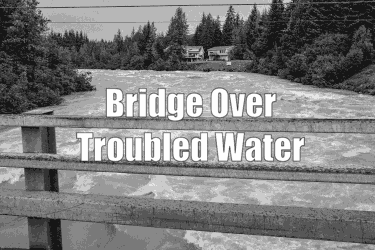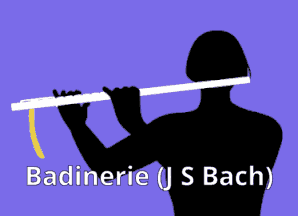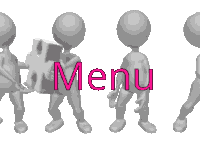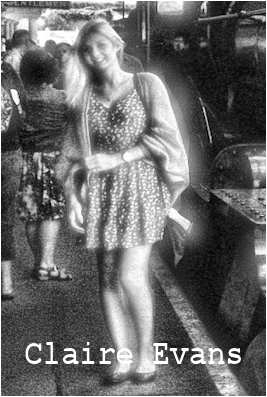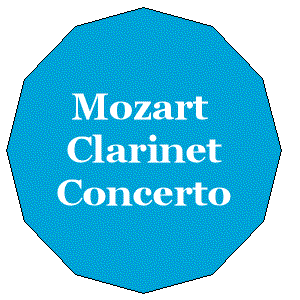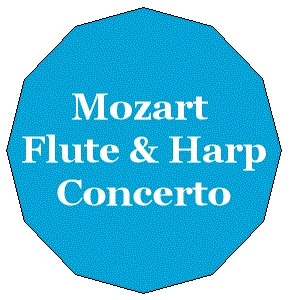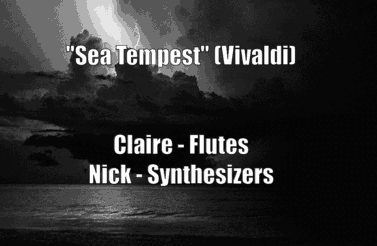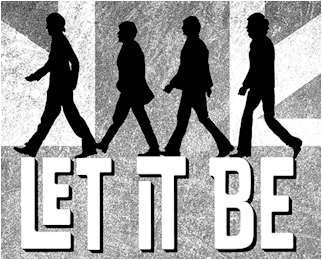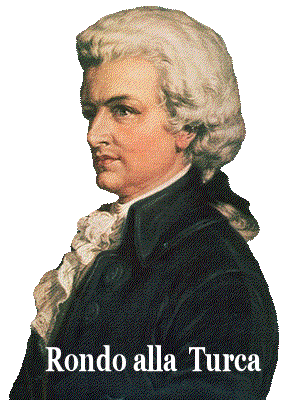I dream of Mozart.
Something my friend Claire Evans said to me after watching the film "Amadeus". That night she actually met him. But her dream of Mozart also extended to two of his works. A Clarinet Concerto and A Flute & Harp Concerto.
In this interview we discuss a project we worked on to allow Claire to fulfil an ambition to record these two works.
Nick: Hello Claire. Thanks for coming to do this interview.
Claire: A pleasure to be here.
Nick: What is your story?
Claire: I would describe myself as a multi-musician. I can play a lot of instruments. Well except the Double Bass. I am too short to reach some of the notes.
Nick: LOL. How did you learn to play?
Claire: Some piano lessons for a while. But it wasn't my sort of instrument. I prefered the woodwind types such as flutes and clarinets. My favourite was the flute because of it's simple, beautiful tone. I am self-taught on these instruments. I remember having a old recorder that made some dreadful sounds......LOL
Nick: It is not easy today for people who play these sorts of instruments. Although these perforners are very skilled these skills are not so much in demand. Do you see this as a problem?
Claire: I am realistic that you are not going to make a good living nowadays playing flutes and clarinets. It is not my plan to go down that path. My career aims is more in the production and composition fields. So I have learned a lot of those techniques. I spend too much time in front of computer screens.
Nick: You're telling me. But I can vouch for Claire's abilities in modern recording techniques. Which made our project more easy. I would like to ask why you spent so much time practicing the flute and clarinet.
Claire: Purely for the love of it. It's also quite relaxing knowing it's basically just for fun. But I do take the performances very seriously.
Nick: Let's talk about our project. A friend of a friend put Claire in my direction because I was someone who was known to be able to produce authentic sounding orchestral tracks. Here is where technology now excels.
Claire: A real piece of luck. I always wanted to be able to record parts of Mozart's Clarinet Concerto and his Flute & Harp concerto. But that was never going to happen. No chance of performing these things live and no way to get the backing tracks. I had tried to make recording by playing over other performances. But you get two flute players for the price of one. It didn't work.
Nick: I agree. We have all tried this. Remember I come from a pre-digital era, so it was even harder......LOL
Claire: I was shocked when I heard a couple of tracks you had done. Hard to believe they were synthesizers.
Nick: I think those recordings were of some Tchaikovsky pieces, which did turn out well. So we arranged to meet.
Claire: I was surprised at first that you basically had just one keyboard and everything else was in the computers.
Nick: That's it for me. One MIDI controller and all softsynths. Makes life easier. We did a few test pieces and I saw there were possibilities. I saw no problem producing the backing tracks. Let's cut to the chase and explain what we did.
Claire: Why not.
Nick: Both pieces were quite long, over 8 minutes. But with Mozart it is basically strings and not as many parts as you might imagine. Five or six say. It's the way he composed that makes the magic. So my job was quite easy.
Claire: I agree I did help by doing some of the backing flutes and clarinets remember.....LOL
Nick: We came to a decision quite quickly with the Flute & Harp Concerto. We got ride of the Harp and replaced it with a harpsicord.
Claire: That was perfect. The sound was better to play against with the flute.Most of the Harp versions were quite weak, whereas the harpsichord was more biting and cutting.
Nick: I love harpsichords anyway. They are very rhythmic, as we found out.
Claire: You could feel that when I was recording it.
Nick: I shall explain how we proceeded. I made a very simple guide track. Basically a melodic template. I gave this to Claire to practice with. She knew these pieces very well. I was then able to work on the full tracks while she experimented.
Claire: That was a good technique from the start. I had more time to experiment with the breathing techniques as well as all the intonations and nuances.
Nick: You lost me there with that musical talk......LOL
Claire: I was amazed how hard it was though. When you play it for fun it was easy. Doing it for a real recording was a right pain. I worried a lot.
Nick: I remember the phone calls and text messages.
Claire: Sorry about that. But after a couple of weeks it really kicked off. I had both of these guide tracks for both concertos, so I switched between them, rather than get bogged down. That made it easier.
Nick: It took me about the same time to record the full backing tracks. I have a lot of experience with this, so know every trick to cut corners. Then the day arrived to do the recordings with Claire.
Claire: D-Day I called it.
Nick: We decided to record both pieces on the same day. Almost like a real stage performance. More pressure but potentially a better result.
Claire: I remember waking up that morning with a sore throat and thought about delaying it. But the throat got better.
Nick: A nervous throat? Recording woodwind instruments can be a nightmare. I used a good quality condensor mic and a shield booth. I didn't want to cut too much from the outside though. We did have a few spikes so I used a little touch of compression from a Shadow Hill Class A Mastering Unit. I don't like compressing real recordings usually, but we had to.
Claire: Playing along with the headphones was weird, but I had practiced it beforehand.
Nick: Smart thinking. Actually the recording session went great and we got enough down to make the final results.
Claire: It was easier than I expected. But the breathing got lost in some places. It was actually quite draining. The Clarinet Concerto was the hardest. I wasn't totally happy with my playing.
Nick: They are tough pieces though. I loved the long sustained note between 3.48 and 3.56 on the Flute Concerto. And the bit between 4.33 and 5.47 is quite remarkable. So much going on. And in the Clarinet Concerto some of those jumps between the notes always amaze me that you can play it.
Claire: Thank you. With the long sustained note, I kept it clean, no vibrato, but you have to get that bit just right. That other section you mentioned is beautiful written by Mozart, you have to employ so many differing playing techniques. That is a tough bit. The clarinet is probably one of the best instruments moving through the registries. I think Mozart knew that.
Nick : With my producer's head on, I decided to leave what we had. And think about the final mixes. I was happy with it myself.
Nick: The mixing took about a week. We corrected some notes with Melodyne (everybody else does) and I added some extra string parts.
Claire: I liked the extra depth with that. I did ask about lowering the harpsichord track volume sometimes.
Nick: That's a really good thing to do. All soloists should have a say in how their works sound. It is their "Baby". Remember harpschords are not touch sensitive and they can get too sharp. So it was a good idea to adjust the volumes on occasions. It is something the usual Harpist would have done. Good thinking Claire.
Claire: The final mastering process was interesting and something I had never done before.
Nick: Mastering is the real glory. We just used a AMEK Mastering EQ, a Shadow Hills Mastering Compressor, the "OVEN" processor (love it) and a BX True Peak Limiter. And that's all.
Claire: Keep it simple, stupid.......LOL
Nick: Were you pleased with the outcomes?
Claire: WHAT DO YOU THINK !!!! I love them and so do many others. I never thought I would record these pieces. It was a lot of hard work, but I'm glad I did it.
Nick: It was fun real fun and someone so talented to work with is always something special. I would have to say this project was one of my personal favourites and your playing was brilliant.
Claire: Thank you Nick.
Nick: Thank you Claire. I have posted the recordings. Have a listen. There is no reason today not to try to do something you have always wanted. Music should be fun. With todays' technology "dreams" can come .
